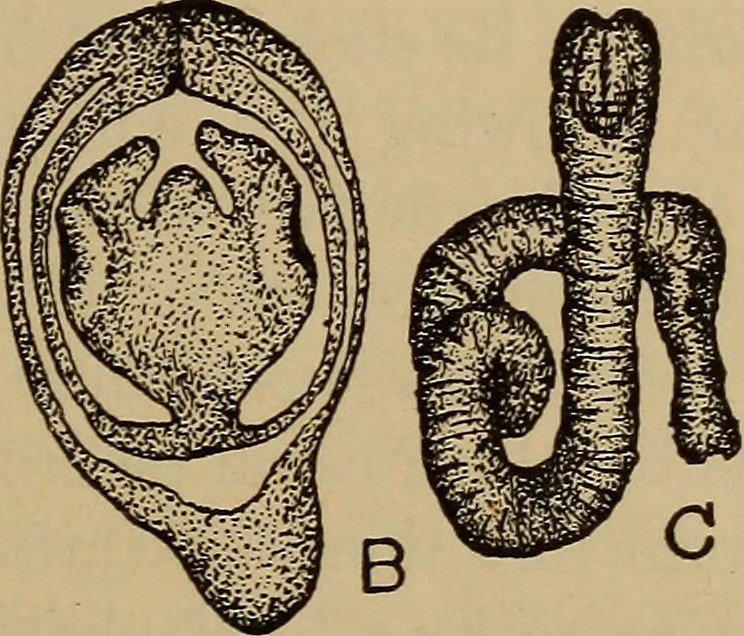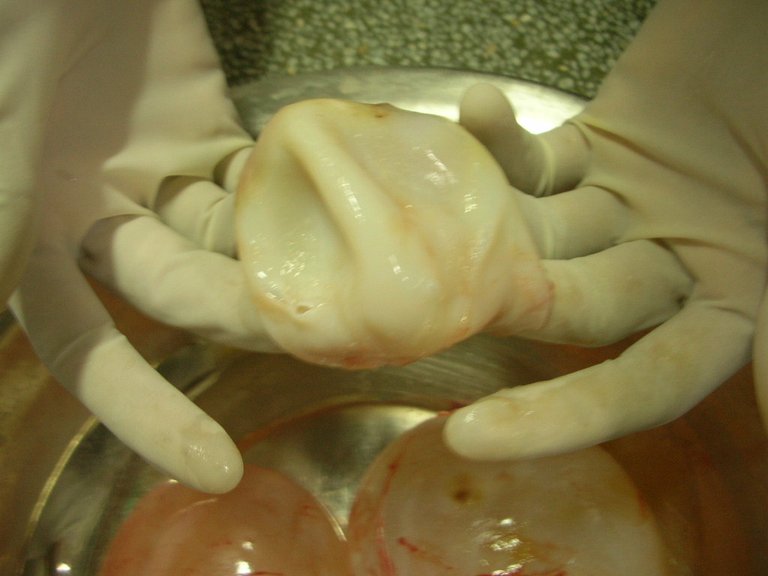Hydatid disease otherwise known as Echinococcosis, is an infection caused by tapeworms belonging to the genus Echinococcus. The genus Echinococcus is a tiny tapeworm that is simply a few millimeters long, five species have been identified each affecting a wide range of domestic and wild animals.

flickr.com
It is likewise a Zoonotic disease which affects affects humans too. The lifecycle of all tapeworms involves two animals, one is a carnivore which is the definitive host, where the adult worms live in their intestines, the other is, the intermediate host where the worms can form cysts in various organs, any mammal including humans could be the host in this case.
The symptoms experienced as a result of this disease are caused by the cysts, these cysts are slow-growing fluid-filled structures containing the larvae, they are most often located in the lungs or liver. Hydatid cysts act like tumors which h can disrupt the function of the organ where they are found.
In those affected animal organs, they contribute to poor growth and cause reduced production of milk and meat. In humans, the disease is often very deadly with a long time of treatment required. They may not come with symptoms for a while, but as the cysts grow in the liver, lungs or other organs in the body, they begin to cause, cough, bloody stool, discomfort in the chest, lump in the midsection, unplanned weight loss, shortness of breath, and even nausea.
Dogs are the most common primary host for the infection, they shed eggs in their faces, while sheep and other livestock become infected through grazing pastures that are already contaminated with dog faces.
The life cycle gets complete when dogs can scavenge the carcasses of fallen stock and they invest the larval cysts that have developed within the tissue. For this life cycle to be broken and the spread of infection stopped.
Dog and farm owners must take serious responsibility for their actions, by ensuring all farm dogs are dewormed at least within the space of 3 months consistently. The removal and disposal of dead stock should be eliminated from dogs.

wikimedia
Raw feed should not be given to dogs, if the owner desires to feed off to their dog, it must be frozen at 180°C for at least 10 days to render the cyst ineffective. Wash your hands thoroughly after handling a dog, especially a farm dog because you stand a higher chance of carrying the tapeworms with them.
When humans ingest eggs of the parasite, most likely when there is a hand-to-mouth type out transfer which is possible through contact with their objects and feces. Human-to-human transmission of infection is impossible, and dogs begin to pass the parasite eggs at seven weeks after infection.
Most times, infection would go away without treatment in dogs, it's only that reinfection may happen consistently and soon too. In humans, on the other hand, removing the cysts surgically is often the most common form of treatment usually in combination with anti-parasitic drug therapy.
You can prevent hydatid disease by consistently deworming your dog, preventing them from consuming raw feed, washing your hands consistently, and stopping the dog from licking your face. Those people residing in an unhygienic environment, also stand a high chance of getting infected.
Try not to consume contaminated water, wash your vegetables properly so you don't end up eating infected soil found on them.
Proper diagnosis has to be done to determine the presence of the infection, as it could mimic other diagnoses like tuberculosis, liver abscess, liver cysts, biliary colic, and budd-chiari syndrome.
References
sahealth.gov+treatment+prevention
clevelandclinic/health/diseases
